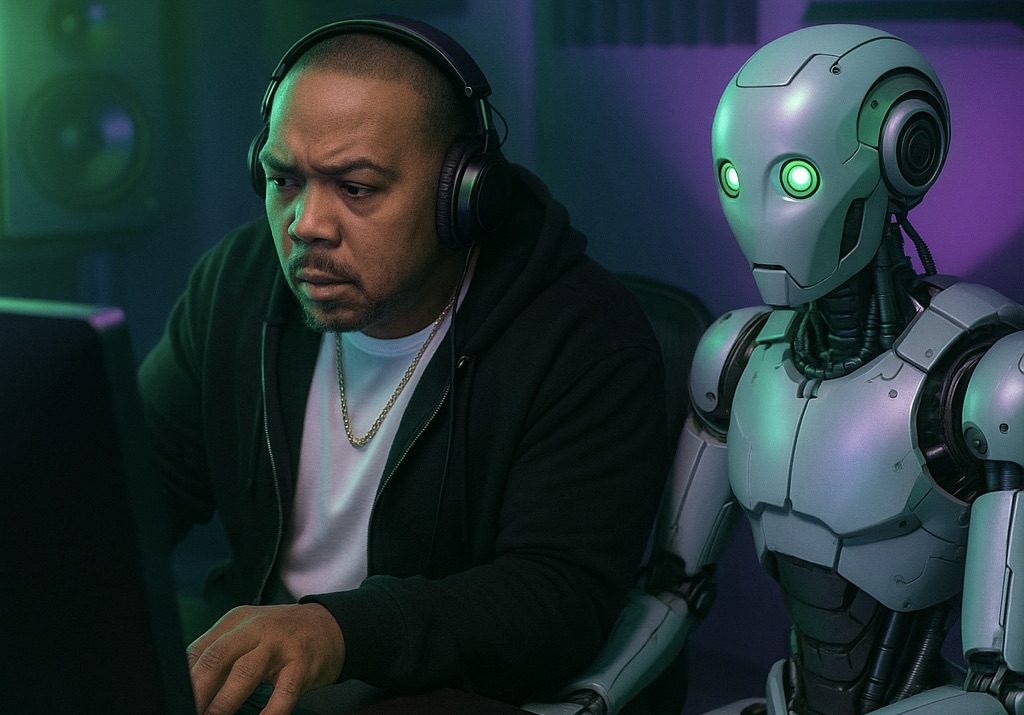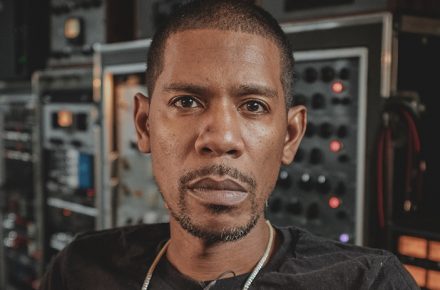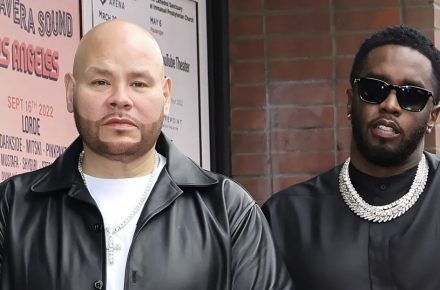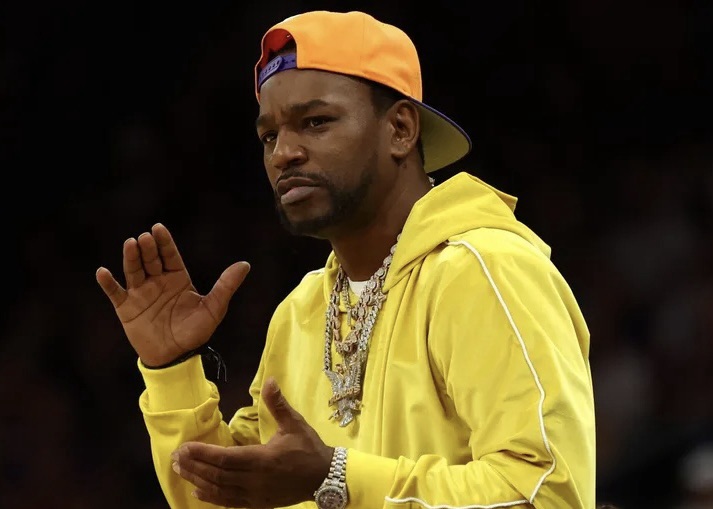Timbaland’s latest move into artificial intelligence was supposed to mark a new era for music. Instead, it opened a can of worms.
The Grammy-winning producer recently co-founded Stage Zero, a company built around “A-pop,” or artificial pop—a genre built entirely with AI-generated artists, songs, and even storylines. The music comes to life through platforms like Suno, which turns text prompts or sample beats into finished tracks. The idea is to blur the line between tech and creativity, ushering in a new generation of entertainment.
But the rollout took a wrong turn when Timbaland posted an AI demo that included a beat made by independent producer K Fresh—without permission. In the video, Timbaland is seen uploading K Fresh’s instrumental, complete with his producer tag, into Suno. The platform then spits out a new track. This remix was shared on social media, presented as a creative showcase of AI’s potential, but it wasn’t long before people noticed something off.
K Fresh discovered the clip online like everyone else. He quickly took to Instagram to tell his side of the story, sharing the full timeline—from posting the original beat on TikTok to watching a global superstar feed it to an AI model. Shock turned into frustration as producers, fans, and industry voices rallied behind him, accusing Timbaland of lifting work without consent or credit. The outrage wasn’t just about one beat—it was about what this moment symbolized.
Timbaland responded during an Instagram Live, where he called the track a remix and claimed the purpose was to demonstrate AI’s capabilities. He admitted he never reached out to K Fresh in advance and said he contacted him afterward, asking for the original file and clarifying that the project wasn’t for profit. K Fresh’s legal team pushed back, demanding not just a public apology, but the removal of his work from Suno’s training data and a commitment to prevent future unauthorized use.
Shortly after, Timbaland issued a formal apology: “I take full responsibility for that oversight.” He promised to be more mindful moving forward. But the apology came after the damage was done, and many questioned how a producer so deeply embedded in hip-hop’s culture of credit and collaboration could miss something so basic.
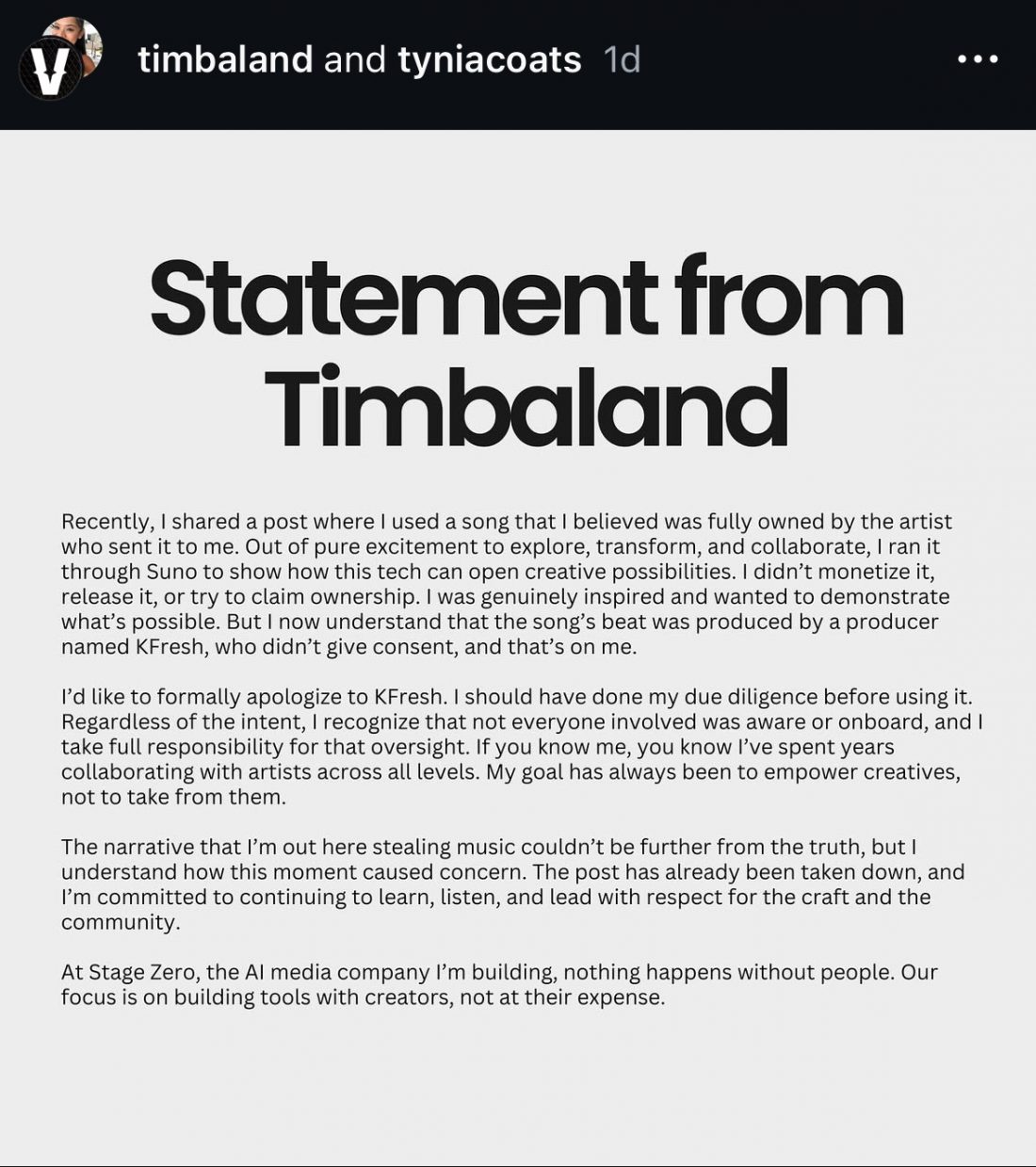
The bigger conversation, though, isn’t about Timbaland’s intent. It’s about what happens when AI tools make it dangerously easy to remix, recreate, or outright clone creative work. In hip-hop, sampling has always walked a tightrope between homage and infringement, but there were rules—lawsuits, clearances, publishing splits. AI removes those guardrails, making it possible to replicate another artist’s style or sound with minimal effort and zero accountability.
And that’s what makes this moment different. It’s not Timbaland doing something new—it’s him doing something faster, cheaper, and with less friction than ever before. Technology like Suno doesn’t just remix music; it potentially erases the original creators entirely.
Ironically, Timbaland once took a strong stance on this very issue. Back in 2012, he and Missy Elliott publicly criticized Drake for working on a posthumous Aaliyah project without the support of her family or core collaborators. Timbaland said it felt wrong emotionally and creatively to touch that material without full blessing from those who knew her best.
Now imagine a future where anyone—not just Drake—can generate new Aaliyah tracks using AI trained on her unreleased vocals, all without consent. That’s the door Timbaland is helping to open. The controversy isn’t just about stealing a beat. It’s about undermining the essence of artistry in the name of innovation.
Timbaland may have apologized, but the moment has already become a cautionary tale. As AI continues to reshape music, the industry is going to have to draw new lines—quickly. Because if machines can do what artists do, and do it faster without paying them, the question isn’t just who gets credit. It’s who gets to create at all.

